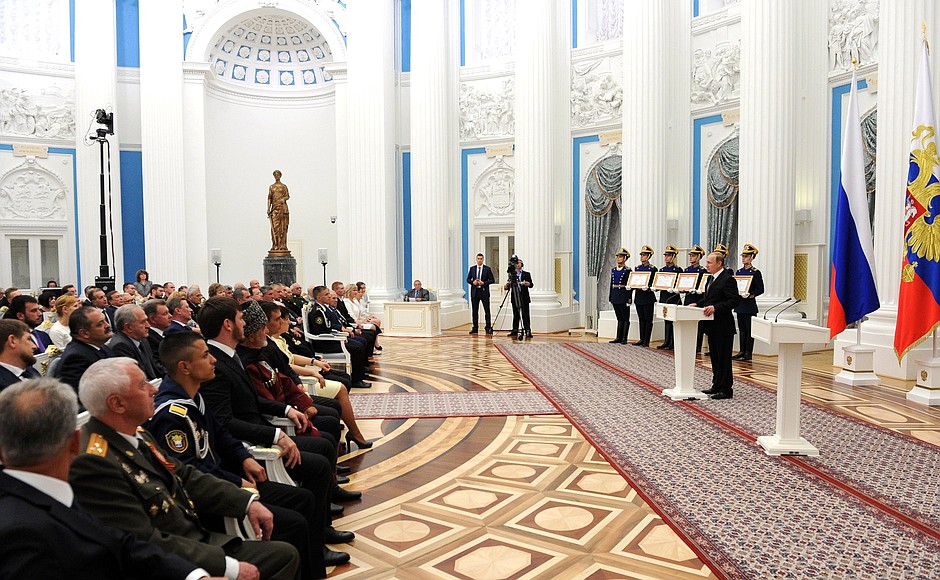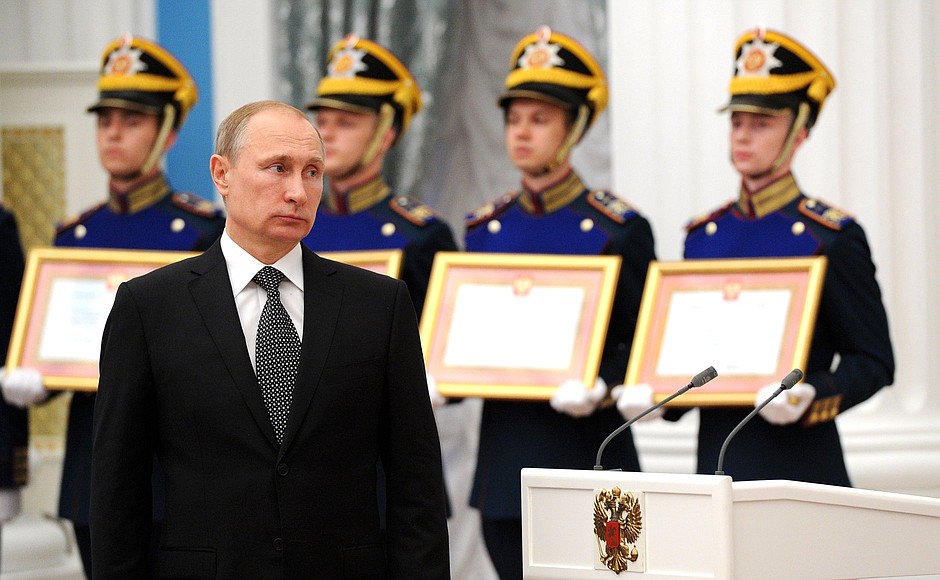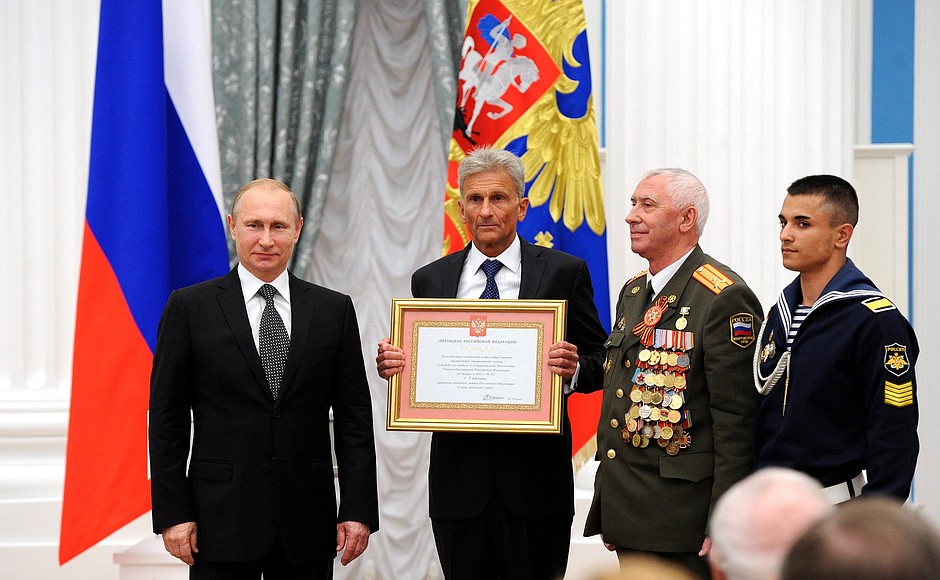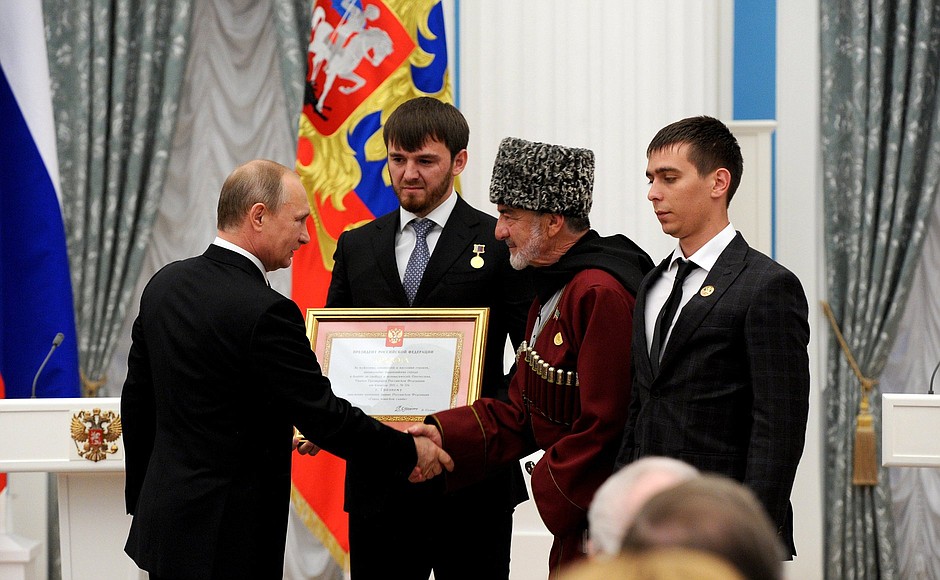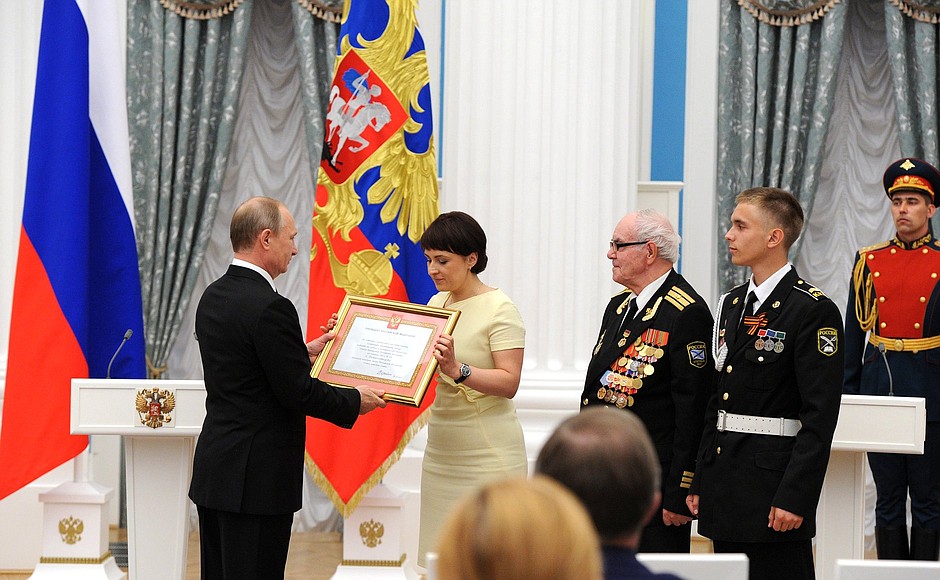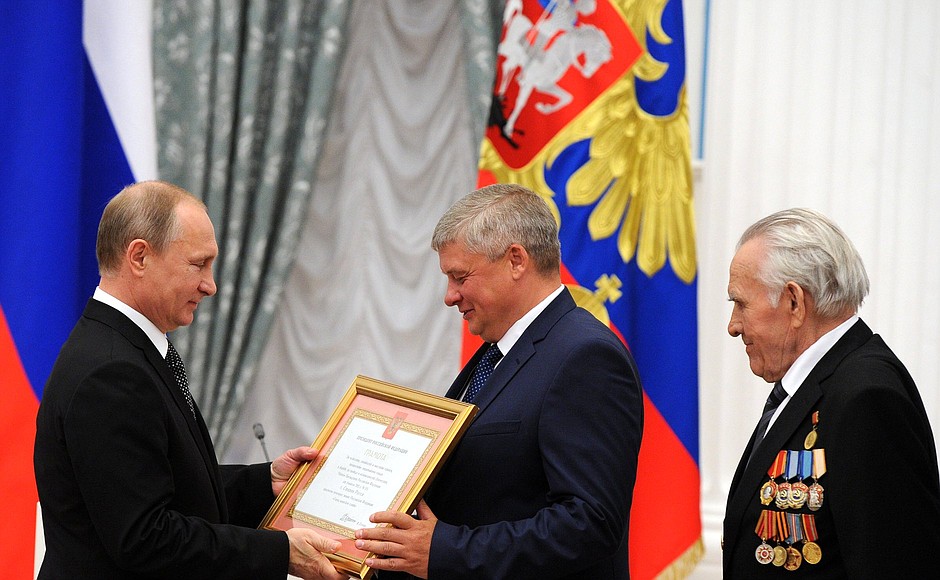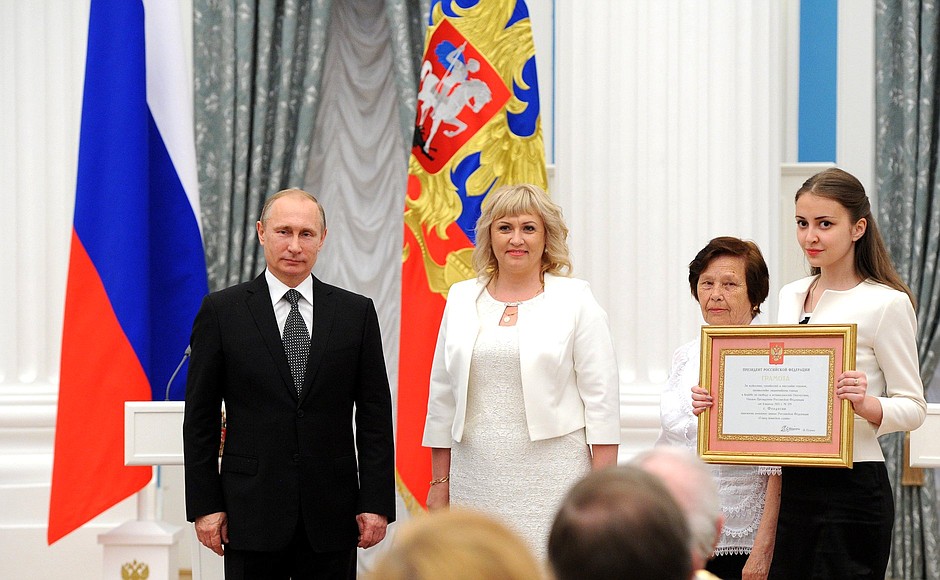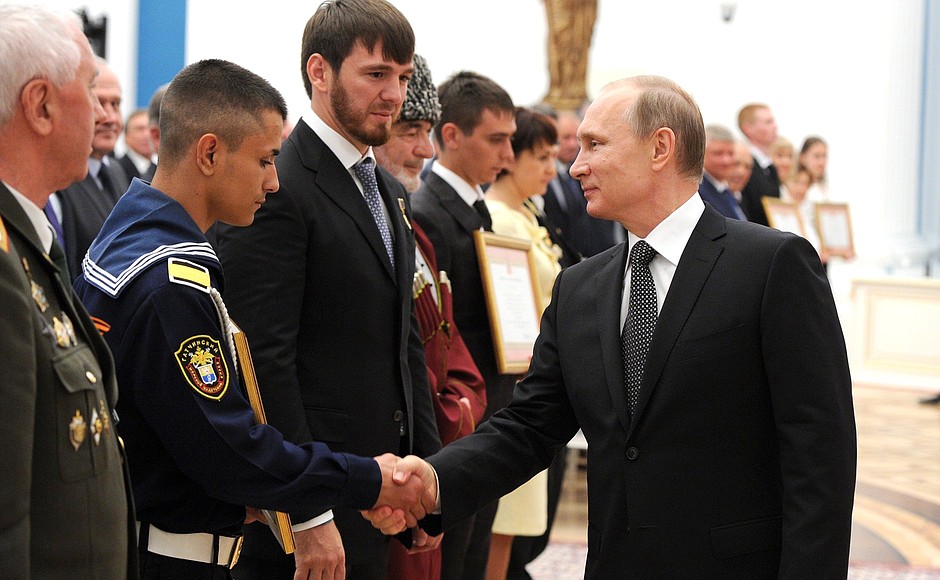The honorary titles are awarded for courage, steadfastness, and mass heroism displayed by cities’ defenders in the fight for their Fatherland’s freedom and independence. The President signed the corresponding executive orders on April 6, 2015.
* * *
Speech at ceremony presenting certificates conferring the title of City of Military Glory on Gatchina, Grozny, Petrozavodsk, Staraya Russa and Feodosia.
President of Russia Vladimir Putin: Veterans, friends,
It is a pleasure to welcome you to the Kremlin for this official ceremony presenting the certificates conferring the title of City of Military Glory.
June 22 is a special date for Russia and for our people. On this day, 74 years ago, the Nazis attacked our country in the most devious fashion and the Great Patriotic War began. The Soviet people went through the greatest trials, defended their native soil at the cost of huge sacrifices and privations, achieved an unconditional victory and vanquished a powerful enemy thanks to their unity and unprecedented love for their homeland.
Our sacred duty is to remain true to these great values of patriotism, preserve the memory of our fathers and grandfathers’ feat, and honour the veterans. The conferral of the title of City of Military Glory has become not just a tradition but also a symbol of our devotion to the generation of victors. Today, this title is being conferred on the towns of Grozny, Feodosia, Petrozavodsk, Staraya Russa and Gatchina. The defenders of these cities made a tremendous contribution to bringing closer the victory over Nazism.
The battle for the Caucasus, for example, saw fierce fighting take place around Grozny. The city’s people turned it into an unassailable fortress and tens of thousands of people from all around the Chechen-Ingush ASSR built defensive lines. The Wehrmacht troops made several attempts to break through the frontline in September 1942, but were stopped, and in October were already on the defensive. When it became clear that their bid to take Grozny had failed, German aviation launched mass air raids on the city’s factories and oil reservoirs, but the oil workers and energy specialists rebuilt everything in very quick time and Grozny was soon once again supplying the petroleum products so needed at the frontlines and on the home front too.
Feodosia holds a special place in the chronicle of military glory. The first mention of Russian troops’ feats in this town dates back to the time of the Russo-Turkish war in the 18th century, when our army succeeded in taking this coastal fortress. Feodosia and its people experienced severe trials during the Great Patriotic War. German aviation began attacking the town on June 23, 1941. By September, the 1st Crimean People’s Militia Division had formed here and underground groups were organised. The Kerch-Feodosia landing operation was an outstanding example of fearless courage.
The ancient town of Staraya Russa has many glorious pages to its name. The Soviet troops’ counteroffensive near Staraya Russia in August 1941 has gone down in history. It helped to divert part of the German army group North, which was moving in on Leningrad.
Pterozavodsk has also earned the title of City of Military Glory. The military operations in the Karelo-Finnish SSR were part of the battle for Leningrad. It was here, around Petrozavodsk, that the enemy was halted and could not skirt Lake Ladoga so as to join the main forces that were pushing through to Leningrad. The people of Petrozavodsk lived through difficult years of enemy occupation before being liberated in June 1944.
The title of City of Military Glory is also conferred today on Gatchina. A military garrison was stationed here in the 18th century, and in 1910, Gatchina became home to Russia’s first military airfield and the first pilot school. Gatchina always served as an important stage in the defences around Russia’s northern capital. Gatchina’s defenders displayed particular courage in August and September 1941, when they kept the German invaders at a halt for three weeks. This was enough time to complete the construction of the Pulkovo defence line and slow down the enemy’s attempts to break through to Leningrad. In September 1941, following bloody battles, the German troops entered Gatchina, but the town’s people did not give in. In Krasnogvardeisk, as the town was known at the time, they formed partisan and underground detachments and fought fearlessly for their Motherland.
Friends,
I congratulate with all my heart the people of the cities that have received the City of Military Glory title today. I wish you success and all the very best.
Thank you for your attention.
<…>
Friends,
Let me congratulate you all once again on today’s event – the conferral of the City of Military Glory title on your cities.
Additional
I think that for everyone in these towns this is a welcome event and also a very significant one, because this lofty title does not only help to preserve the historical memory, but, just as importantly, is also an expression of the genetic connection we feel with those whom we honour as heroes.
What kind of echoes does this produce in the hearts and souls of ordinary people today? If here, on this soil, my forebears were heroes, this means that I too carry a piece of all that is my treasure and pride. This is what the link between generations is all about.
We have our hero cities, and we need to remember now all of our cities of military glory too. But we all know that these places were defended not only by their people, by those who lived there at the time, but also by people from throughout the entire vast Soviet Union, who shed their blood and gave their lives to defend them. This was what united us during the difficult years of the Great Patriotic War, what unites us today, and what will always unite us in the future. This is the guarantee of our future victories.
Congratulations!
